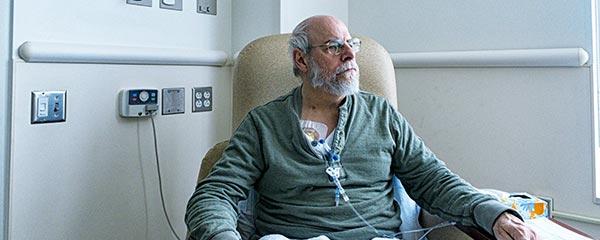Story Highlights
- 87% say a candidate's plan for cutting healthcare cost is important to vote
- 39% may vote for opposing candidate if lowering costs was top priority
- Healthcare affordability important to voters of both political parties
Editor's note: The research detailed below was conducted in partnership with West Health, a family of nonprofit and nonpartisan organizations focused on lowering healthcare costs to enable successful aging.
WASHINGTON, D.C. -- Nearly nine in 10 Americans rate a candidate's plan for reducing healthcare prices as very or somewhat important to their vote choice in the upcoming midterm elections. In fact, 39% say it is very or somewhat likely that they would cross party lines to vote for a candidate who makes reducing healthcare costs their top priority, according to a new poll from West Health and Gallup. (See full results in the West Health-Gallup 2022 Healthcare in America Report).
Democrats, Black and Hispanic Americans More Focused on Affordable Healthcare
Majorities across party lines say a candidate's plan to reduce the cost of healthcare is very or somewhat important to their vote choice. Although Democrats are more likely than independents and Republicans to agree, with 57% rating healthcare affordability as very important, about three in 10 Republicans also report that reducing the cost of healthcare is very important. Combined, 77% of Republicans say this issue is very or somewhat important in determining their vote, along with 85% of independents and 96% of Democrats.
Black and Hispanic Americans are also much more likely than White Americans to report that a candidate's plan to reduce the cost of healthcare services is very important in determining their vote. Sixty-five percent of Black and 60% of Hispanic Americans say this, compared with 41% of White Americans. Women are slightly more likely than men to say reducing costs is very important to their vote (52% compared with 43%, respectively).
Democrats are more likely than Republicans (40% versus 22%) to say they are very or somewhat likely to vote for a candidate from the opposing party who prioritizes reducing healthcare costs. But that number rises to 50% among independents. As of September 2022, 43% of Americans consider themselves independent in Gallup's national polling. This is a significant proportion of the voting population that could be swayed toward either party if a candidate prioritized reducing costs.
Black Americans are more likely than White (and Hispanic and Asian) Americans to say they are very or somewhat likely to vote for a candidate from a party other than their own if reducing healthcare costs was that person's top priority (57% compared with 34%, respectively).
Reducing Cost of Prescriptions Critical to Americans 65+, Regardless of Party
A majority of Americans (86%) report that a candidate's plan to reduce the cost of prescription drugs is very or somewhat important in determining their vote. This is especially true for Americans aged 65 and older. Fifty-two percent of seniors say reducing the cost of medication is very important, compared with 45% of those aged 50 to 64 and 44% of adults under 50.
This higher reported importance among older adults holds regardless of political party affiliation. Republicans aged 65 and older are nearly twice as likely to report that a candidate's plan is very important in determining their vote than are Republicans under 50 (46% to 24%, respectively). Sixty percent of Democrats 65 and older say a candidate's plan to reduce costs is very important, compared with 48% of Democrats under 50. There are few differences across age groups for independents.
Black and Hispanic Americans place a much higher importance on reducing the cost of prescription drugs than White Americans do. Nearly two-thirds (65%) of Black Americans and 56% of Hispanic Americans consider the issue very important in determining their vote, compared with 40% of White Americans.
Bottom Line
More than half the country views the U.S. healthcare system as poor or failing in affordability and equity. Americans report that prioritizing healthcare and prescription affordability is important when deciding whom to vote for. Thus, these could be key issues in the upcoming midterm elections.
An estimated 100 million Americans say the issue is so important that they are likely to cross party lines in order to support a candidate who made healthcare costs their top priority. In this time of partisan politics, it is particularly notable that four in 10 Democrats and more than one in five Republicans report they would be at least somewhat likely to do so.
The data from this survey also suggest that combating healthcare and prescription drug costs is particularly motivating for voting blocs that have historically had a large influence in close elections. Americans aged 65 and older and Black Americans are much more likely than younger and White Americans to report healthcare or prescription affordability is very important in determining their vote. And more than half of Black Americans are at least somewhat likely to vote for a candidate from a party that they don't typically support if that candidate prioritized lowering the cost of healthcare.
Public and voter sentiment is clear: Candidates for office and elected leaders should focus on making prescription drugs and healthcare services more affordable.
Read the full West Health-Gallup 2022 Healthcare in America Report here.




